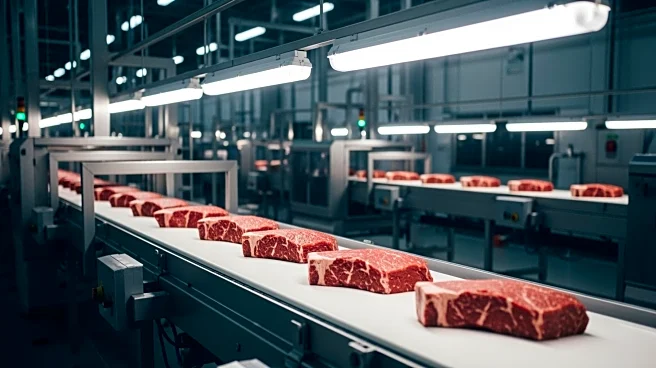What's Happening?
The U.S. Department of Agriculture, under Secretary Brooke Rollins, has confirmed a plan to import up to 500,000 tons of beef from Argentina annually. This initiative aims to stabilize consumer prices amid fluctuating domestic beef production. While the
plan is intended to augment supply and ease high beef prices, it has faced backlash from domestic cattle producers. Concerns have been raised about potential price depressions and the impact on local producers' earnings and market share. The National Cattlemen’s Beef Association has expressed strong opposition, warning of risks to domestic livelihoods.
Why It's Important?
The beef import plan is significant as it addresses consumer price hikes, offering potential relief to consumers facing high beef costs. However, the increased supply from imports could lead to an oversupplied market, suppressing prices and affecting domestic producers' economic stability. This situation presents a complex challenge in balancing consumer benefits with producer interests. The plan's implications extend to market dynamics, influencing agricultural policy, investment decisions, and economic outcomes. Stakeholders in the cattle industry and investors are closely monitoring these developments.
Beyond the Headlines
The import plan highlights broader economic and policy challenges, including the need to balance international trade with domestic industry protection. It raises ethical considerations about supporting local producers versus addressing consumer needs. The initiative could trigger long-term shifts in agricultural policy and market strategies, influencing future trade agreements and domestic production practices. The situation underscores the intricate relationship between policy decisions, market demands, and economic impacts, requiring careful navigation to achieve sustainable outcomes.

















